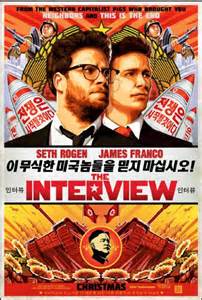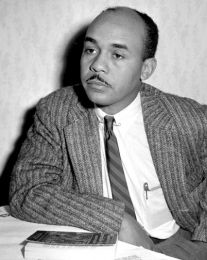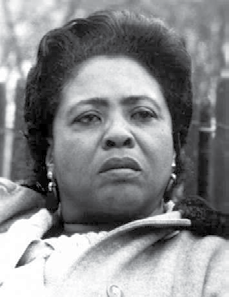To celebrate the tory win in the general election, here are my three favourite living conservatives. Continue reading
The Interview: Saccharine in satire
My biggest critique of the interview? It is simply not funny.
Team America World Police carved a hugely unflattering portrait of the prior Kim Jung which actually was funny. It celebrated abundant American exceptionalism in a way that that is palpable and does express the concept of Manifest Destiny.
Barack Obama has rightly distanced himself from Ferguson
The sheer audacity of pundits like Cornel West to suggest that Ferguson “signifies the end of the age of Obama” is disgraceful. He then went onto the call Obama’s premiership a “Wall Street Presidency” and a “drone presidency”.
This is outrageous considering Obama’s dedication to tackling income inequality plus extending the welfare state, certainly incongruous with the accusation of being Wall Street friendly.
Drones are both moral and effective – anybody who chastises droning must look at the figures: 2160 terrorists killed and only 67 civilian deaths since 2008 in Pakistan (this statistic was gleaned from Al Jazeera, not a pro Western source).
Several initiatives have been taken under Obama’s administration to help the African American community. The “White House Initiative: My Brother’s Keeper” for one, which has been the subject of opprobrium of ad hominem attacks due to Obama’s relationship with his own brother, which is a) frankly none of our business and b) not at all conducive.
He and Michelle are strong role models for young black Americans, and, I would contest, young black people globally, and tells them, yes they can.
Black History Month special: Léopold Sédar Senghor (9 October 1906 – 20 December 2001)
The first president of Senegal, he is equally well known for his literary and philosophic contributions to the 20th century.
He was born in Dakar won a scholarship to study in Paris and was an intellectual founder of “Négritude”, which was an intellectual Francophone movement developed as a backlash of French colonialism plus racism.
It employed some Marxist elements. Jean Paul Sartre publicized the movement in France, bringing it to the forefront of French consciousness.
In 1939 he served in the French army, where he was a private. Arrested by German troops, he spent time in prison, which he spent writing poetry.
”I wear European clothing,” he once said, ”and the Americans dance to jazz which derives from our African rhythms: civilization in the 20th century is universal. No people can get along without others.”
He founded the Senegalese Democratic Bloc in 1948, he ran as that party’s candidate in 1951 and defeated the Socialist candidate for the National Assembly. He was elected president in 1960 and promulgated policies encompassing “African Socialism” and stood in contradistinction to the Soviet Union, which he greatly disapproved of.
In 1984, he became the first black member of the French Academy.
“Art is animated by invisible forces that rule the universe.”
Black History Month special: Miriam Makeba (March 4, 1932 – Nov. 9, 2008)
Singer and anti aphatheid campaigner, she made 30 original albums. She was heavily involved in the anti apartheid movement.
The key to her international success was a small singing part in the film Come Back Africa, a dramatised documentary on black life directed covertly by Lionel Rogosin. When the film was finished Rogosin invited her to attend a screening at the 1959 Venice film festival, where she became an instant sensation.
Harry Belafonte, the “King of Calypso” became her mentor while she was in London.
In 1962 she performed at J F K’s birthday party, plus she began making speeches to the UN denouncing the Apatheid regime, galvanizing the South African government into banning her records. She married Black Panther Stokely Carmichael, a decision which proved very unpopular with Americans.
She took part in the Nelson Mandela 70th Birthday Tribute, a popular-music concert staged on 11 June 1988 at Wembley Stadium, London.
In 2004, Makeba was voted 38th in the 100 Great South Africans.
“I ask you and all the leaders of the world, would you act differently, would you keep silent and do nothing if you were in our place? Would you not resist if you were allowed no rights in your own country because the color of your skin is different from that of the rulers, and if you were punished for even asking for equality? I appeal to you, and to all the countries of the world, to do everything you can to stop the coming tragedy. I appeal to you to save the lives of our leaders, to empty the prisons of all those who should never have been there.”
Black History Month special: Ralph Ellison (March 1, 1914– April 16, 1994)
He is most known for his writing, but he was also an accomplished sculptor, musician, photographer, and college professor He won the 1953 U.S. national book award for fiction, for “Invisible Man” which was considered a hugely important book as a critique of society, in 1967 it was proclaimed the most important book since ww2.
In 1969 he won the presidential medal of freedom, and was bestowed the award by Lyndon Johnson who said, inter alia, “Ralph Ellison is a writer who has inspired the white America not just to understand black America’s problems, but to stand up and fight to eliminate them”
He was also made Chevalier of the Ordre des Arts et des Lettres by France, and was the first black member admitted to the Century Association, the most exclusive social club connected to the arts.
“The antidote to hubris, to overweening pride, is irony, that capacity to discover and systematize ideas.”
Black History Month special: Lewis Latimer (September 4, 1848 – December 11, 1928)
Born into slavery, his parents fought hard for his freedom along with the efforts of famous abolitionist William Lloyd Garrison.
Latimer later became an expert draughtsman and inventor after he observed the draftsman making the detailed drawings the U.S. Patent Office required. He bought a book on drafting, assembled a set of tools, and taught himself mechanical drawing. After learning to use T squares, triangles, and compasses, he was allowed to assist the draftsman in the office where he worked. When the man left, Lewis was hired to take his place. In 1874, he co-invented an improvement of a train water closet (toilet facilities).
He worked extensively alongside Alexander Graham Bell, the inventor of the telephone. And later perfected Edison’s lightbulb, he devised a way of encasing the filament within an cardboard envelope which prevented the carbon from breaking which provided a much longer life to the bulb and hence made the bulbs less expensive and more efficient. In 1890, Latimer published a book entitled Incandescent Electric Lighting: A Practical Description of the Edison System.
Latimer helped to install the first electric plants in Philadelphia, New York City and Montreal and oversaw the installation of lighting in railroad stations, government building and major thoroughfares in Canada, New England and London. Latimer next devised a method of making rooms more sanitary and climate controlled. He termed his device an: “Apparatus for Cooling and Disinfecting”. The device worked wonders in hospitals, preventing dust and particles from circulating within patient rooms and public areas.
“There must be vistas flying out beyond, that promise more than present conditions yield.”
Black History Month special: George Washington Carver (5 January 1864 – January 5, 1943)
Born into slavery, he studied botany at Iowa State Agricultural College in Ames. When he began in 1891, he was the first black student, and later taught as the first black faculty member.
In 1941 Time magazine dubbed him “Black Leonardo” in recognition of his numerous artistic and inventive achievements.
In 1896, Booker T. Washington, a leader black academic and educator, (the first principal and president of the Tuskegee Institute), invited Carver to head its Agriculture Department.
In 1916 Carver was made a member of the Royal Society of Arts in England, joining the likes of Charles Dickens, Karl Marx and Adam Smith. It was rare for Americans to be admitted to the establishment, but not rare for Carver to be awarded prestige, He was given the Spingam Medal by the NAACP in 1923. In 1939 was awarded the Theodore Roosevelt Medal for “distinguished research in agricultural chemistry.” Roosevelt dedicated $30,000 for a national monument to be dedicated to Carver’s accomplishments. The area where Carver spent his childhood, in Missouri, has been preserved as a park. This was the first national monument to an African American in the United States.
In 1977, Carver was elected to the Hall of Fame for Great Americans. In 1990, Carver was inducted into the National Inventors Hall of Fame. In 2000, Carver was a charter inductee in the USDA Hall of Heroes as the “Father of Chemurgy”
Thomas Edison, was so impressed by Carver’s inventing that he invited him to work at Edison Laboratories at an annual salary of $100,000 per year, an offer which Carver politely declined.
But, perhaps, most importantly of all, Carver invented Peanut Butter, the greatest accompaniment of sliced bread.
“When you do the common things in life in an uncommon way, you will command the attention of the world”
Black History Month special: Benjamin Banneker (November 9, 1731 – October 9, 1806)
Thought to have been the most educated African American of his era, he was buttressed by Quakers from a young age. His studies and calculations in astronomy allowed him to successfully predict a solar eclipse in 1789 and to publish farmer’s almanacs in the 1790s. In 1791 he helped design and survey the city of Washington, D.C.
He corresponded with Thomas Jefferson apropos slavery, which galvanised Jefferson to write this panegyric of him:
“I am happy to be able to inform you that we have now in the United States a negro, the son of a black man born in Africa, and of a black woman born in the United States, who is a very respectable Mathematician. I promised him to be employed under one of our chief directors in laying out the new federal city on the Patowmac, & in the intervals of his leisure, while on that work, he made an almanac for the next year, which he sent to me in his own handwriting, & which I inclose to you. I have seen very elegant solutions of Geometrical problems by him. add to this that he is a very respectable member of society. he is a free man. I shall be delighted to see these instances of moral eminence so multiplied as to prove that the want of talent observed in them is merely the effect of their degraded condition, and not proceeding from any difference in the structure of the parts on which intellect depends.”
In 1753 at the age of 22, Banneker finished making a wooden clock that struck on the hour which continued to work all his life. This was the first wooden striking clock made in America.
“The color of the skin is in no way connected with strength of the mind or intellectual powers.”
Black History Month special: Ida Bell Wells-Barnett (July 16, 1862 – March 25, 1931)
Hugely active in the publishing world, as a writer and editor. She was a suffragette and did much to advance women’s and black rights in the US. She was a skilled and persuasive rhetorician. On a train ride from Memphis to Nashville, in May 1884, Having bought a first-class train ticket to Nashville, she was ordered by the train crew to move to the designated car for African Americans, which she refused on principle. As she was forcibly removed from the train, she bit one of the men on the hand. Wells sued the railroad, winning a $500 settlement in a circuit court case, but this decision was later overturned by the Tennessee Supreme Court. In 1896, she formed the National Association of Colored Women. On February 1, 1990, the United States Postal Service issued a 25 cent postage stamp in her honor.
“One had better die fighting against injustice than to die like a dog or a rat in a trap”









